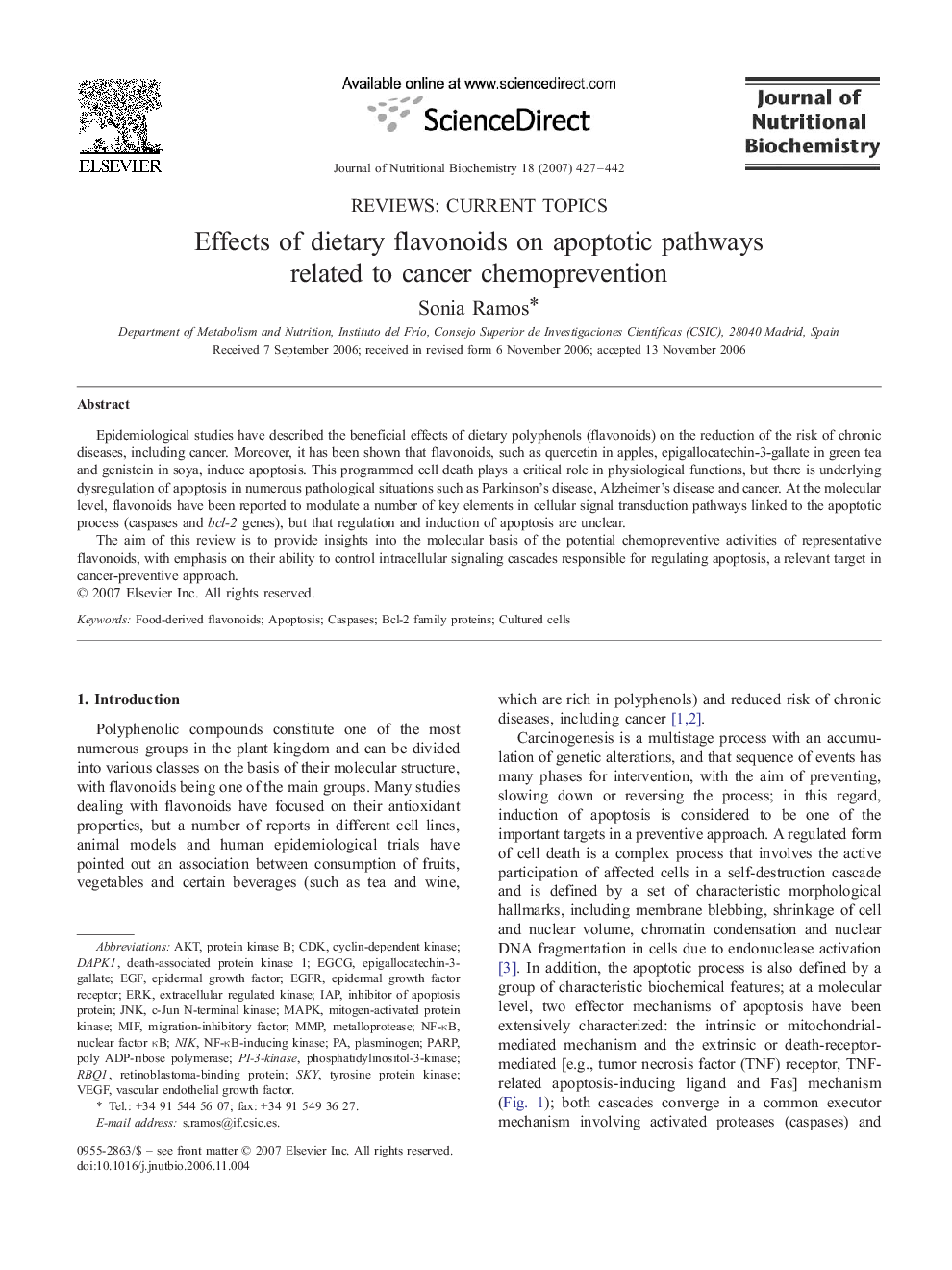| Article ID | Journal | Published Year | Pages | File Type |
|---|---|---|---|---|
| 1990738 | The Journal of Nutritional Biochemistry | 2007 | 16 Pages |
Epidemiological studies have described the beneficial effects of dietary polyphenols (flavonoids) on the reduction of the risk of chronic diseases, including cancer. Moreover, it has been shown that flavonoids, such as quercetin in apples, epigallocatechin-3-gallate in green tea and genistein in soya, induce apoptosis. This programmed cell death plays a critical role in physiological functions, but there is underlying dysregulation of apoptosis in numerous pathological situations such as Parkinson's disease, Alzheimer's disease and cancer. At the molecular level, flavonoids have been reported to modulate a number of key elements in cellular signal transduction pathways linked to the apoptotic process (caspases and bcl-2 genes), but that regulation and induction of apoptosis are unclear.The aim of this review is to provide insights into the molecular basis of the potential chemopreventive activities of representative flavonoids, with emphasis on their ability to control intracellular signaling cascades responsible for regulating apoptosis, a relevant target in cancer-preventive approach.
